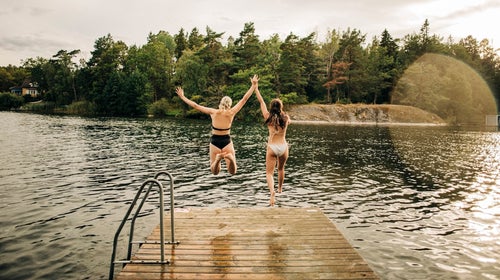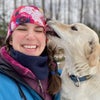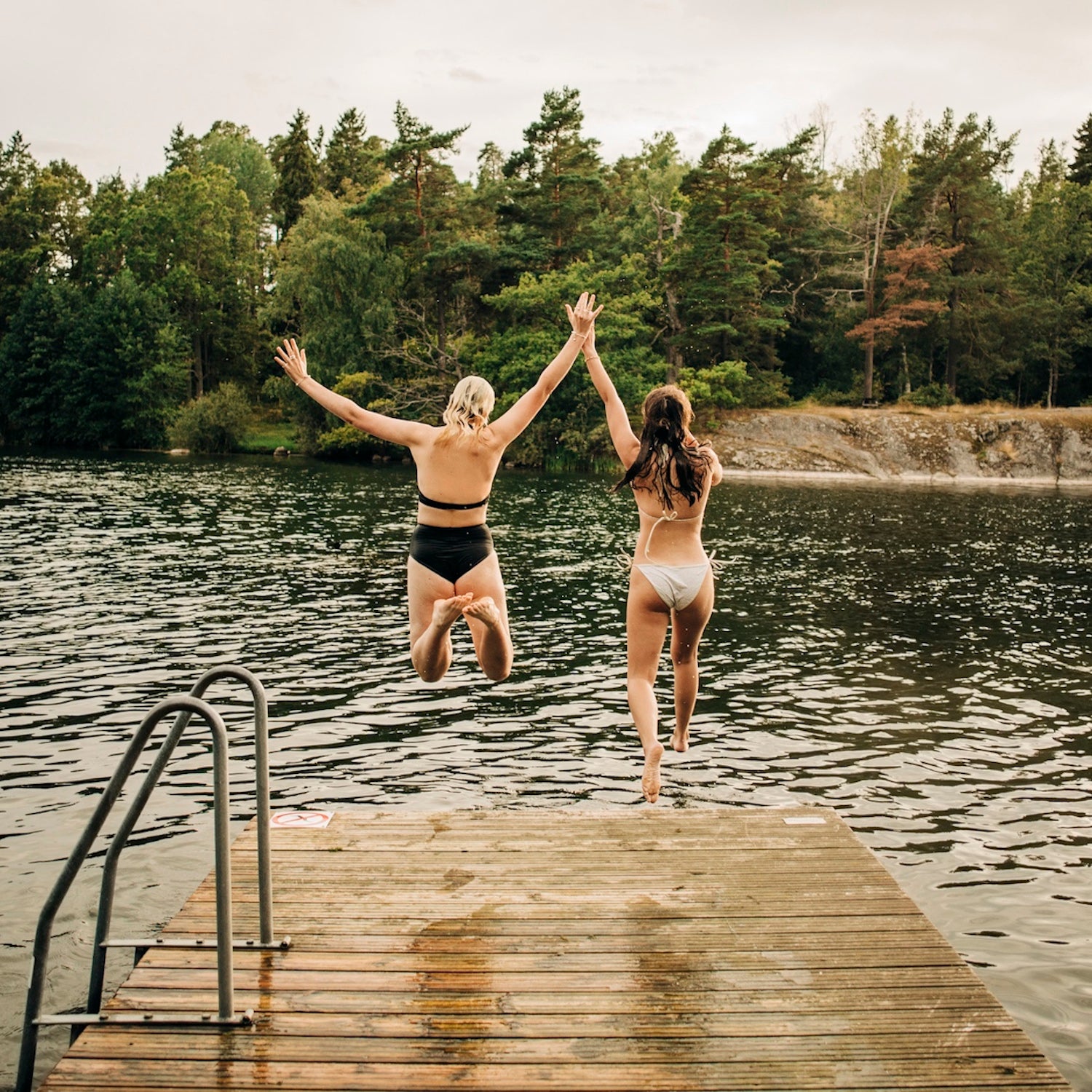Welcome to Tough Love. We’re answering your questions about dating, breakups, and everything in between. Our advice giver is Blair Braverman, dogsled racer and author of and . Have a question of your own? Write to us at toughlove@outsideinc.com.
I’d love to hear your advice on how to develop more body confidence. Not to be weird, but I know you were on Naked and Afraid, and I imagine that takes a lot of comfort with yourself. Do you have any suggestions for feeling less judgmental of myself and more confident in my body?
A few years ago, I flew straight from the Alaskan arctic, where I’d just completed a 400-mile dogsled race, to Southern California, to give a talk at a private girls’ school. The students were almost frighteningly bright and engaged; the parents who attended were lovely and welcoming; the weather was sunny; all in all, it was a great few days. And though it was the last thing I’d expected to notice, I was struck by the fact that every single mom looked incredible, perfectly groomed and toned, like they’d walked straight out of a fashion or fitness magazine (or both). I don’t know if I’d ever been around a group of women who so universally fit the cultural beauty standard.
In the past, in that sort of situation, I might have compared myself to these other women and decided I came up short. I might have felt sloppy and lumpy and self-conscious. (Although, to be fair, sloppy might have been an accurate assessment. Because the invitation came when I was already in the far north, I had no appropriate footwear with me, and in my desperation bought a pair of $20 rain boots at Canadian Tire, which I wore for my presentations.) Worse, I would have projected my self-criticism onto the women around me, assuming that they thought I was less-than. This is, of course, an insidious mental trick: a way to feel badly about myself and other people at the same time, by falsely and unfairly ascribing negative thoughts to them. And, had I done that, I would have been much less happy, and had a harder time enjoying the palm trees and the excellent fruit, and been just a little bit distracted from the truly excellent conversations we were having.
Instead, I felt great about myself. I thought: here are incredibly beautiful women, and I am beautiful too. It was a surprising emotion and it was wonderful, and I wanted to hold onto it and know where it came from. And I realized that its origins were simple: my dogs and I had just raced 400 miles through the Arctic, crossing sea ice and rivers and tundra and gliding under the northern lights. My body had done this amazing thing, and I was proud of it—not because of my appearance, but because of my strength and endurance and knowledge and will. I was proud to show what a body that could do something like that looked like—particularly when I was meeting with teenage girls, who were at the age when my friends and I first started to feel hyper-critical of our own looks.
A few months later, my husband and I had the chance to be on Naked and Afraid. There were a lot of considerations before we said yes—it’s not an endeavor without risks—but one of the things I didn’t worry about was having my body seen, and presumably judged, by millions of people. I was never raised to see nudity as shameful, and I felt good enough about myself that strangers’ opinions didn’t matter.
This is not to say, of course, that the secret to body confidence is to mush across the Arctic or get naked on TV. And I’m hesitant to fully endorse the popular wisdom to focus not on how your body looks, but on what it can do, because people deserve to feel good about their bodies regardless of their capabilities—and besides, capabilities change. I suspect the thing that’s helped me most is getting a bit older (and the fact that media has at least slightly shifted away from glamorizing the heroin-chic ideal of the 1990s and 2000s; I see my body type represented now in ways I never did as a teen). But here are a few other things that have helped me, and continue to help, and if you want to try them, they might help you too.
1. If you find yourself fixating on specific features you don’t like, remember that most people don’t evaluate each others’ appearance based on details, but on a kind of larger aura that includes their smile, their style, the warmth of their laugh, and so on. I think my friends are stunningly beautiful, and that their beauty is not in spite of, but includes, things I’ve criticized on my own body like cellulite and stretch marks. Why should any of us think that we’re the exceptions to the standards that we apply to everyone else?
2. If numbers stress you out, you don’t have to know what you weigh. Like, you literally don’t. You’ll be fine. When I was 20 or so, I cared very much about my weight, and it didn’t make me healthier physically or mentally. Now I haven’t weighed myself in a decade. Sometimes, at the doctor, I ask them not to tell me (nobody’s ever batted an eye), and sometimes I find out by accident and that’s fine too. If you want to gauge changes in your body, there are countless ways to do so—say, by the foods you’re eating, your clothes, or your endurance—that are not measured on a scale.
3. Obviously, ideally, your relationship with your body shouldn’t be dependent on external validation. But if you’re having sex, the person (or people) you sleep with should be hyping you the fuck up. They should make you feel like the most gorgeous person in the world. Nobody deserves access to your body if they can’t see how spectacular it is. (The flip side of this is that it’s uniquely harmful if a lover is unappreciative or even critical. If someone you’re intimate with has made you feel bad about yourself, know that that means there’s something wrong with them, not you.)
4. If you’re having negative thoughts about your body, and can’t seem to break free of them, give yourself periods of time where you are simply not allowed to have those thoughts. These can be short at first. For instance, during a stretching session or a morning walk, vow that you won’t let yourself think negatively about your body for the entire activity. If you have a self-critical thought, remind yourself that no, you’re not doing that right now; push the thought away and focus on something nice instead. This skill gets easier with practice. Ten minutes might seem hard at first, but eventually you’ll be able to go an hour, or a day—or even full time.
5. Finally, to paraphrase YouTube yoga teacher Adriene Mishler, find what feels good. Lean into the moments when you feel strong, or grateful, or happy, or relaxed. Hate sweating, but want to be more active? Go out in winter, or try swimming or an adult ice skating class. When your budget allows, get massages. What clothes make you feel good? What kinds of movement? What people? What media? What foods? Build space in your life for more of those things. The only one who makes the rules for yourself is you.


